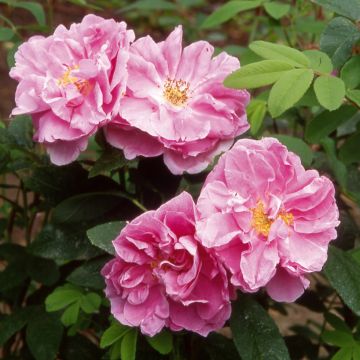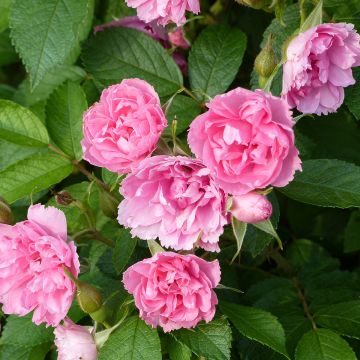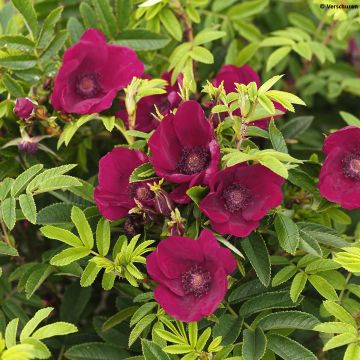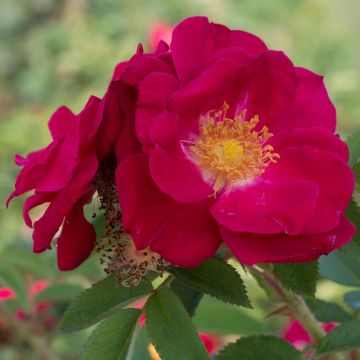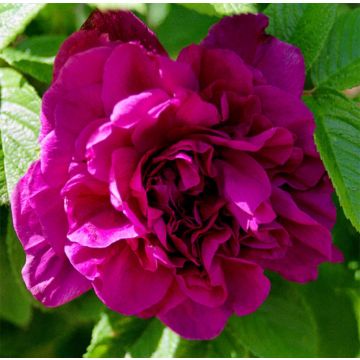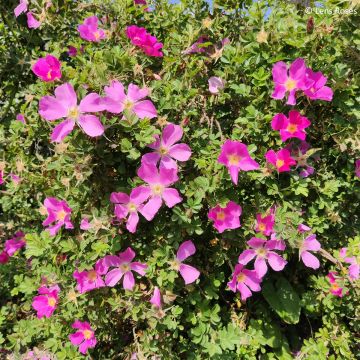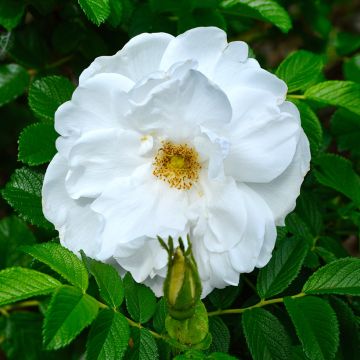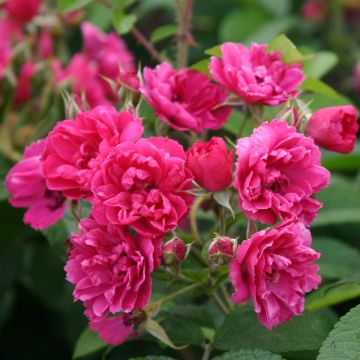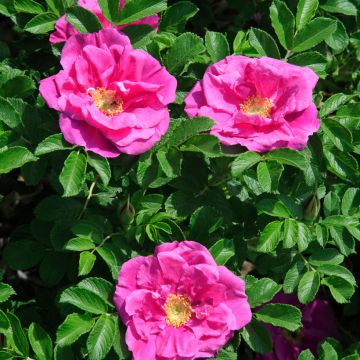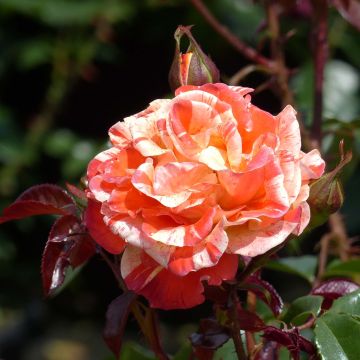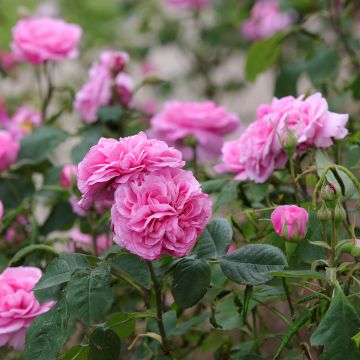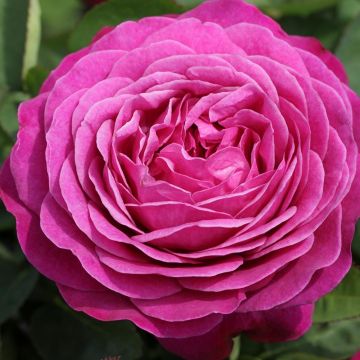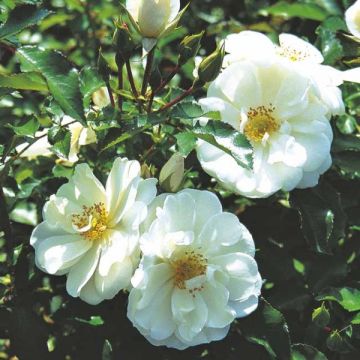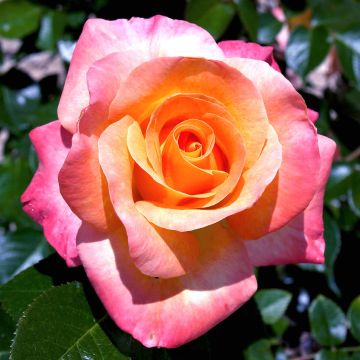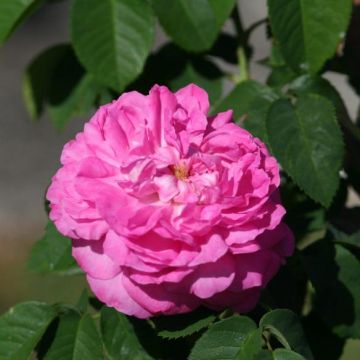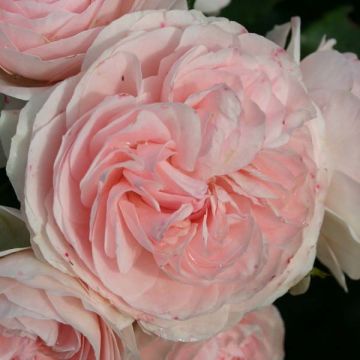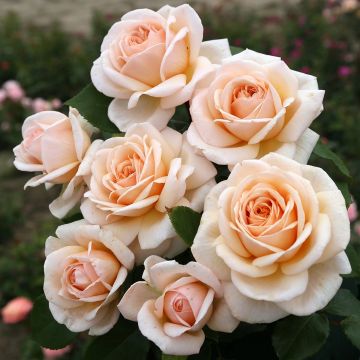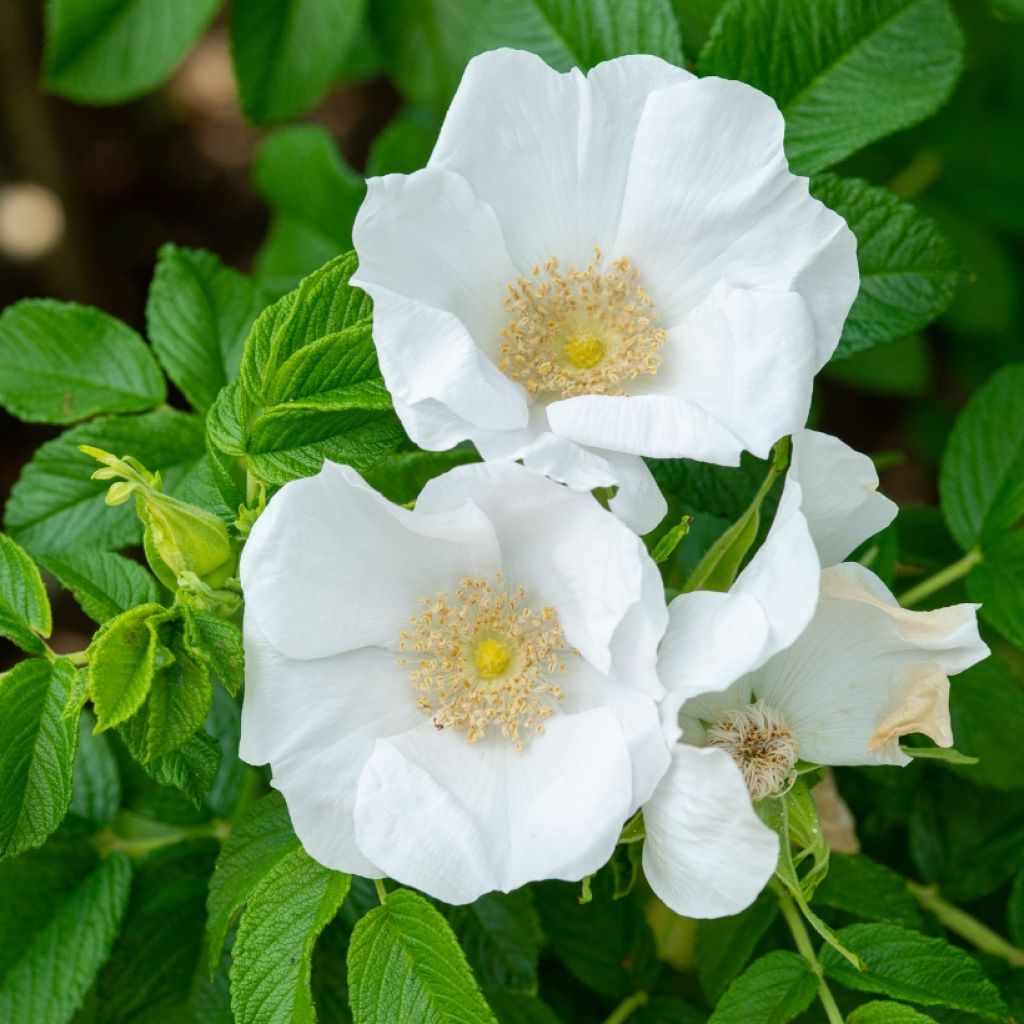

Rosa rugosa Alba - Japanese Rose
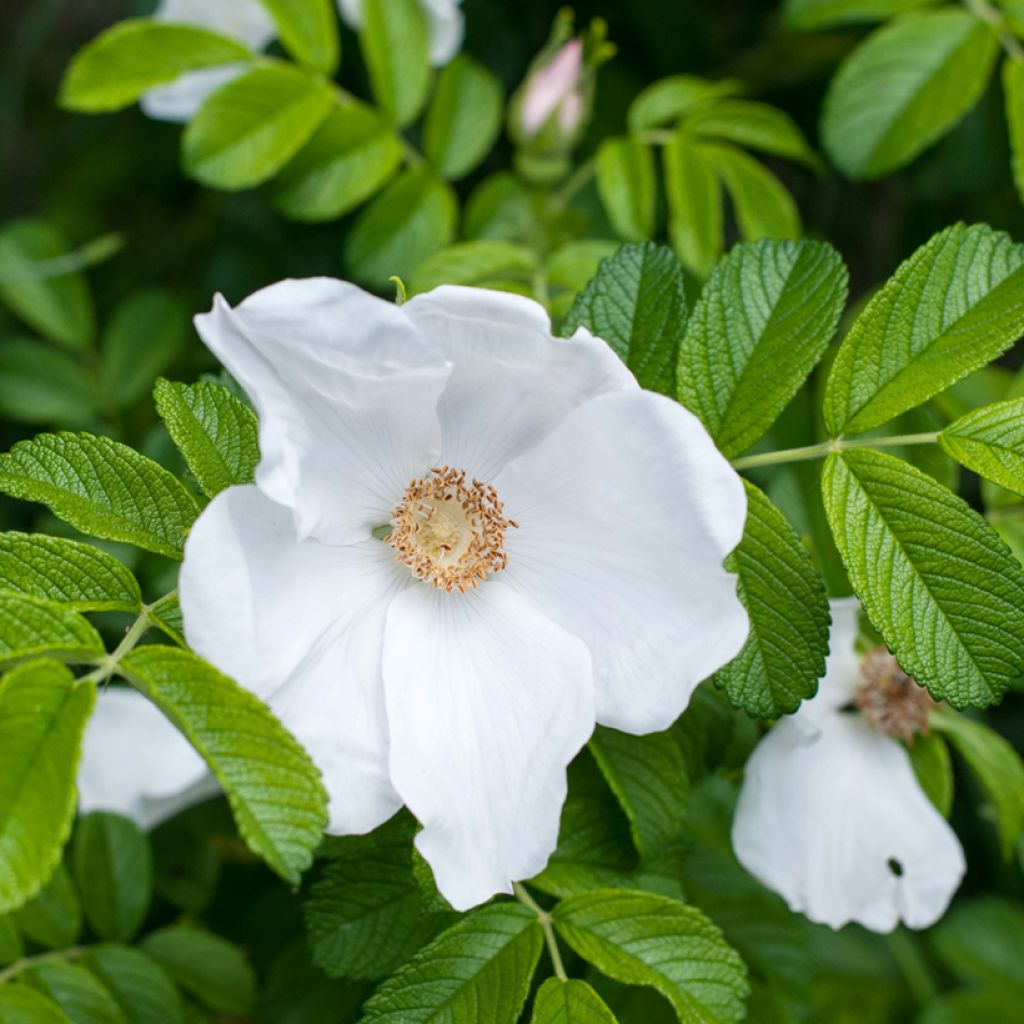

Rosa rugosa Alba - Japanese Rose
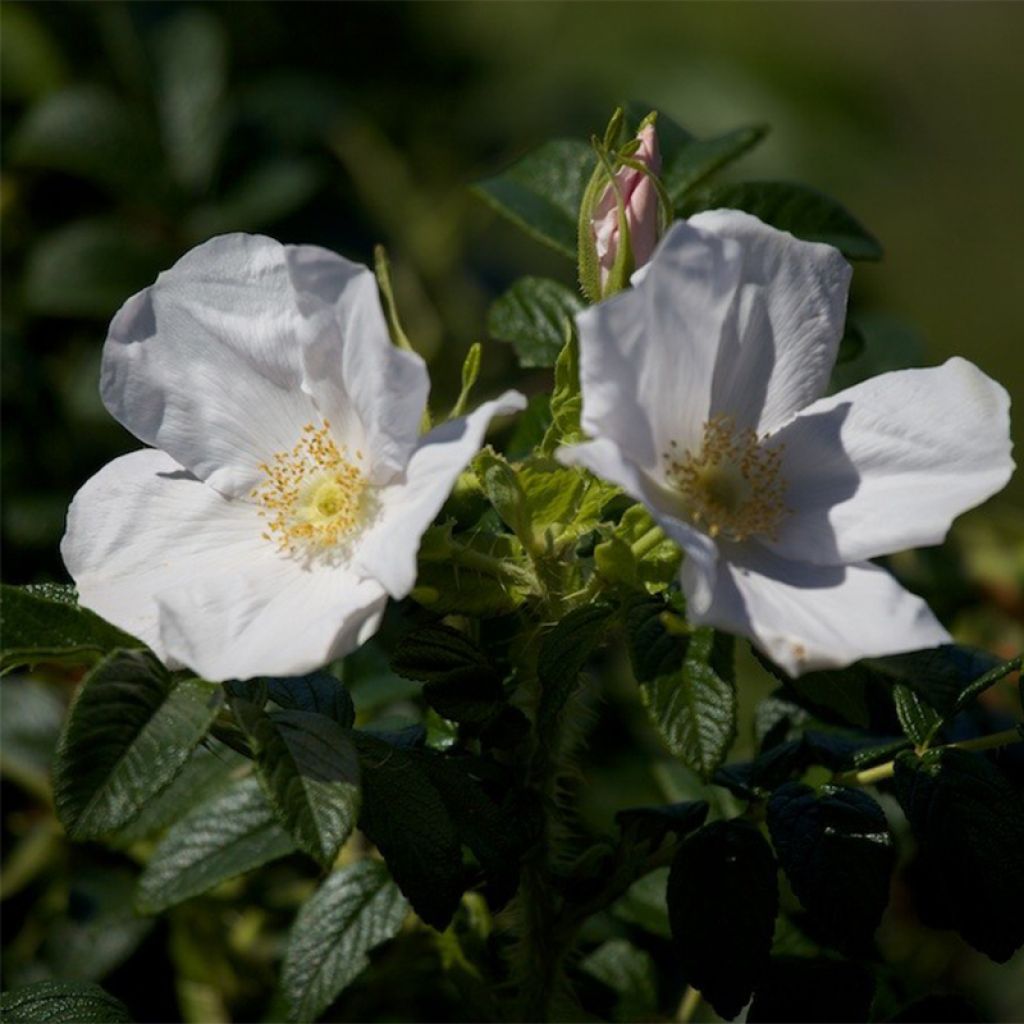

Rosa rugosa Alba - Japanese Rose
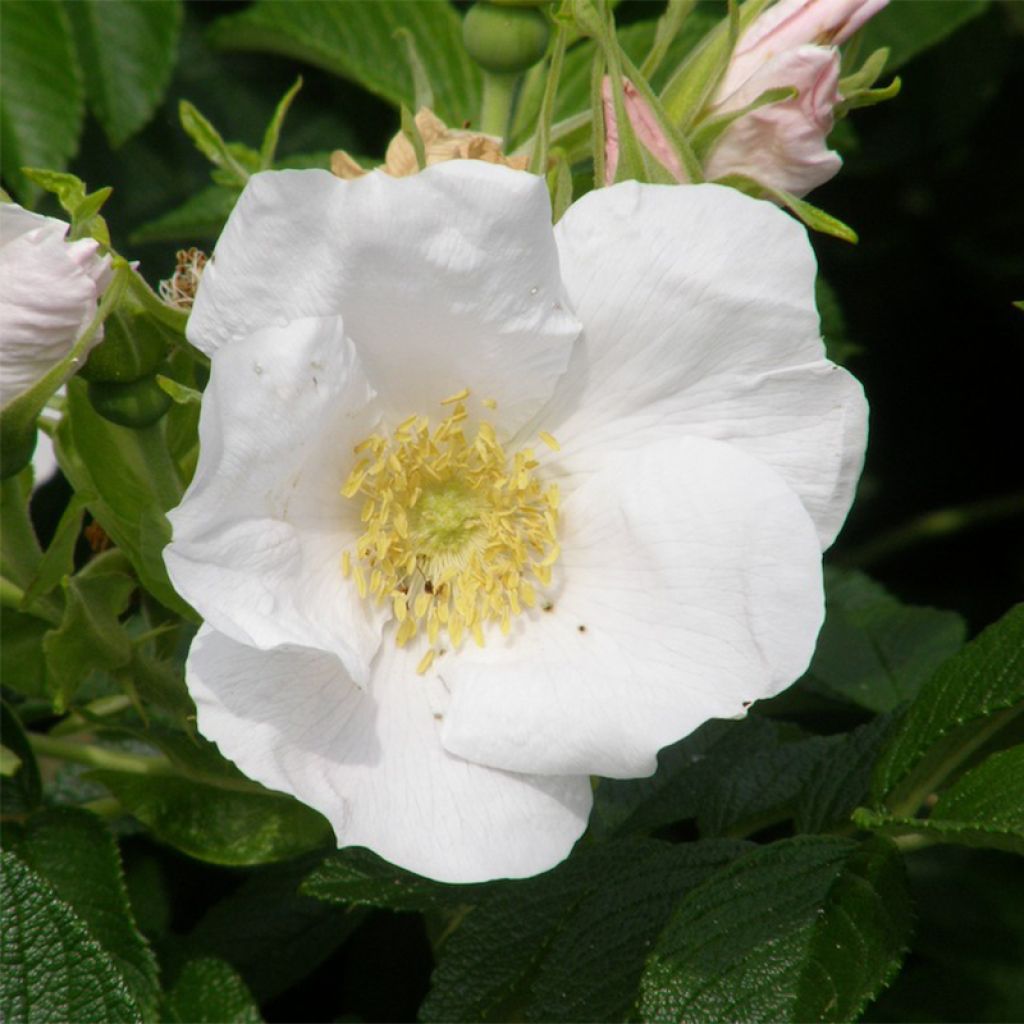

Rosa rugosa Alba - Japanese Rose
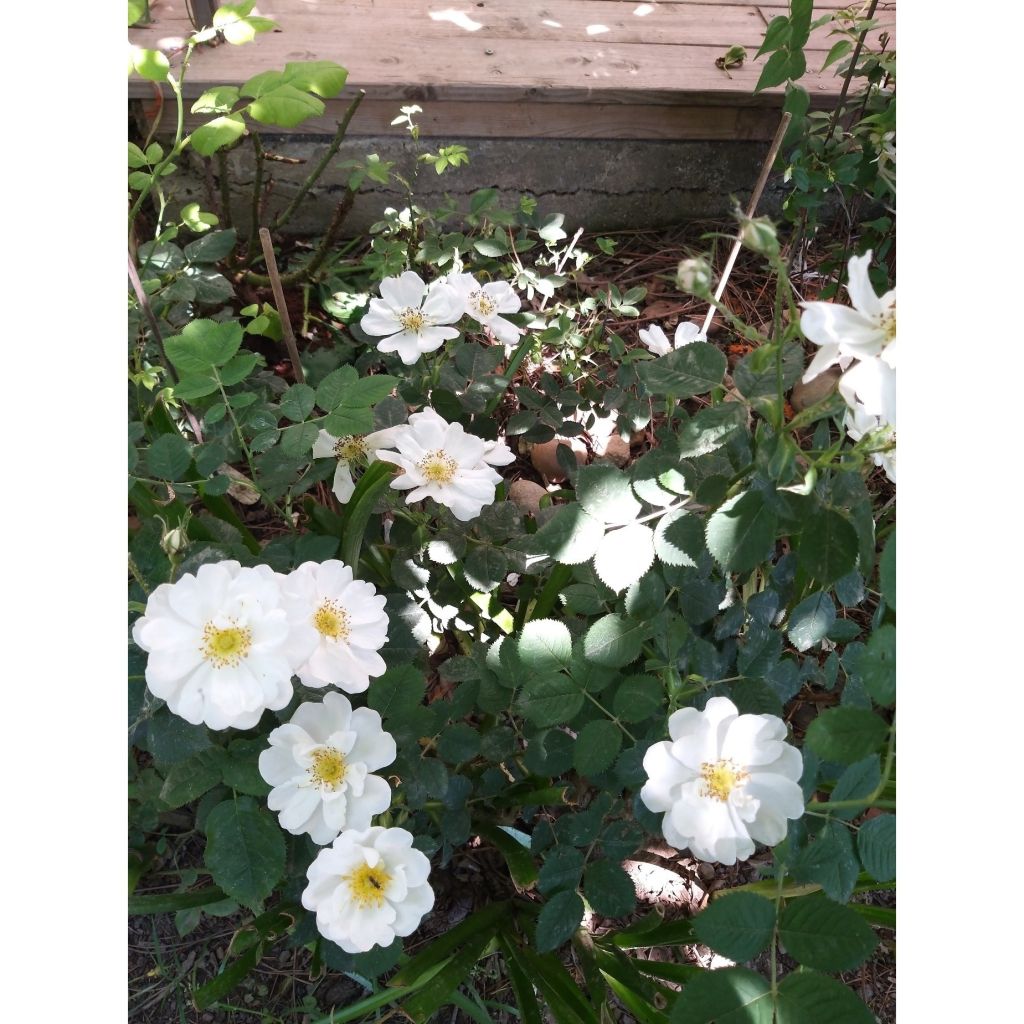

Rosa rugosa Alba - Japanese Rose
Rosa rugosa Alba - Japanese Rose
Rosa rugosa Alba
Rugosa Rose, Japanese Rose, Ramanas Rose
This item cannot be shipped to the selected country
Delivery charge from €5.90
Delivery charge from €5.90
Delivery to Corse prohibited
More information
Schedule delivery date,
and select date in basket
This plant carries a 24 months recovery warranty
More information
We guarantee the quality of our plants for a full growing cycle, and will replace at our expense any plant that fails to recover under normal climatic and planting conditions.
From €5.90 for pickup delivery and €6.90 for home delivery
Express home delivery from €8.90.
From €5.90 for pickup delivery and €6.90 for home delivery
Express home delivery from €8.90.
Delivery to Corse prohibited: UE law prohibits the import of this plant from mainland France to Corse as part of the fight against Xylella fastidiosa. Please accept our sincere apologies.
More information

Does this plant fit my garden?
Set up your Plantfit profile →
Description
The Rose or Rosa rugosa 'Alba' is none other than the white-flowered form of the rough rose, a vigorous botanical rose that suckers and forms impenetrable thickets due to its dense and very thorny growth. Blooming from summer to autumn and with beautiful green and wavy foliage that turns yellow in autumn, it is perfect for a defensive hedge. Its pleasantly scented flowers, with simple crumpled petals, give way to large, fleshy and edible red-orange fruits, very rich in vitamin C. Very hardy and low-maintenance, it is perfect for coastal areas or gardens without gardeners.
The Rosa rugosa, or Japanese Rose, is a wild rose native to the Far East, inhabiting coasts and sandy dunes, with remarkable hardiness and good tolerance to poor soils. It is also one of the few perpetually flowering botanical roses. It grows in a dense bushy habit, with a rounded shape, reaching 1.50 m (5ft) in all directions or even more, as it produces new shoots from the stump. Its straight, highly branched stems are brown and covered in prickles. From late spring to autumn, they bear solitary roses or clusters of three, 6 to 9 cm (2 to 4in) in diameter, with 5 petals. The very pointed buds gradually open into flat cup-shaped flowers. Their texture is silky and velvety, and their pleasant fragrance can be perceived from several meters away. The foliage, abundant down to the base of the plant, consists of leaves with a wavy appearance, divided into 5 to 9 fairly dark, shiny leaflets. And at the end of the season, as the flowering comes to an end, the branches turn beige and the leaves a beautiful golden yellow.
If the passion for botanical roses is widespread, it is fully justified, especially in poor soils or difficult climates: these roses are not only the ancestors of our modern roses, but also generally more robust and very reliable. The Rosa rugosa 'Alba' is a floriferous, powerful yet delicate rose that catches the eye. It will find its place in a hedge, as it has substance and forms a thorny mass that is difficult to cross. It can be associated with cotinus for autumn colours, lilacs for their fragrance in spring, mock oranges for the same reason, and buddleias taking over in summer, but also with viburnums that show a very accommodating character. Finally, it is a very hardy, undemanding and tolerant shrub when it comes to soil, splendid in a flowering hedge. Its fruits, once deseeded, can be used to make delicious and vitamin-rich jellies.
Report an error about the product description
Rosa rugosa Alba - Japanese Rose in pictures


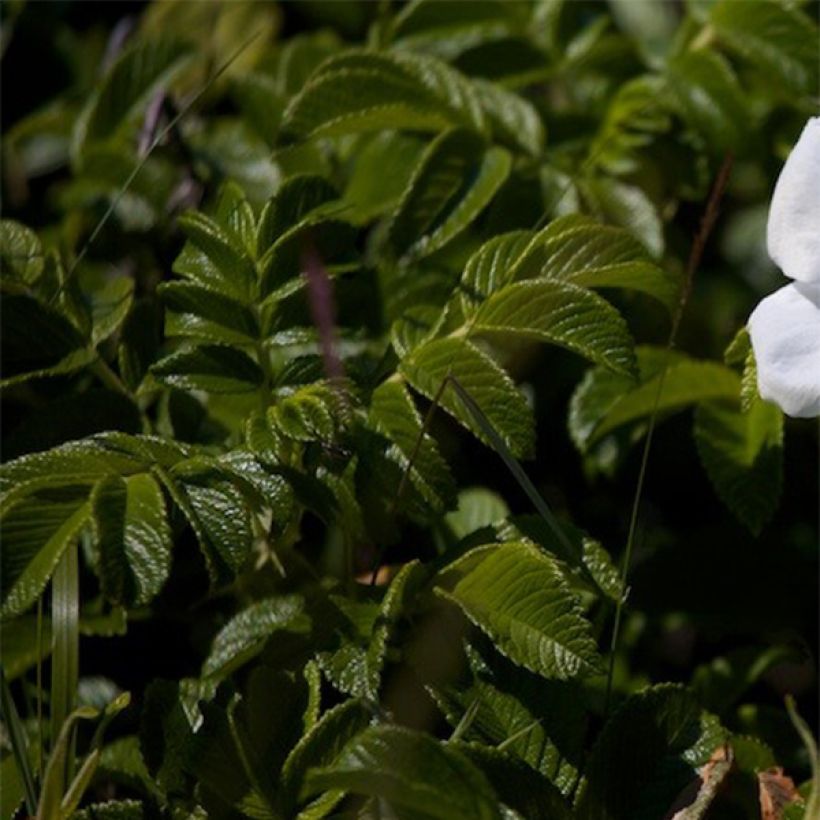

Plant habit
Flowering
Foliage
Botanical data
Rosa
rugosa
Alba
Rosaceae
Rugosa Rose, Japanese Rose, Ramanas Rose
Southeast Asia
Rosa canina Laxa (Wrapped bare root, 3L/4L pot)
Other Rosa rugosa
Planting and care
The rough rose is undemanding, it thrives in all regions that are not too hot, it is not afraid of diseases, cold, rain, poor and occasionally dry soils. It adapts to all types of soil, even sandy, as long as the planting is well cared for! Plant it in well-worked and free-draining ordinary soil, and in a sunny or semi-shaded position that it tolerates very well. To maintain a bushy habit, maintenance is simple: after winter, every 2 years, remove the oldest branches (2-3 years old). Very hardy, this rose can withstand -20°C (-4°F). It may be useful to remove dead wood in winter and remove faded flowers. If necessary, in spring, after the risk of frost, a light pruning can be done. This variety sometimes tends to sucker, which further enhances its appearance.
To plant your rose, whether in a pot or in open ground, work the soil to a depth of 25 cm (10in), crumbling the soil well and placing a bottom dressing such as dried blood or dehydrated horn at the bottom of the planting hole. Position your plant, removed from its pot, covering the top of the root ball with 3 cm (1in) of soil, backfill and water generously to eliminate air pockets. In dry weather, regular watering is necessary for a few weeks to facilitate root development. Also, remember to provide your rose with special rose fertiliser that stimulates plant flowering. To achieve abundant flowering in your roses, regularly bend and tie the branches. Each bend results in a lateral shoot that ends in a bouquet of flowers. Do not hesitate to use this technique, you will be rewarded. Regularly remove faded flowers.
Planting period
Intended location
Care
-
, onOrder confirmed
Reply from on Promesse de fleurs
Roses by purpose
Haven't found what you were looking for?
Hardiness is the lowest winter temperature a plant can endure without suffering serious damage or even dying. However, hardiness is affected by location (a sheltered area, such as a patio), protection (winter cover) and soil type (hardiness is improved by well-drained soil).

Photo Sharing Terms & Conditions
In order to encourage gardeners to interact and share their experiences, Promesse de fleurs offers various media enabling content to be uploaded onto its Site - in particular via the ‘Photo sharing’ module.
The User agrees to refrain from:
- Posting any content that is illegal, prejudicial, insulting, racist, inciteful to hatred, revisionist, contrary to public decency, that infringes on privacy or on the privacy rights of third parties, in particular the publicity rights of persons and goods, intellectual property rights, or the right to privacy.
- Submitting content on behalf of a third party;
- Impersonate the identity of a third party and/or publish any personal information about a third party;
In general, the User undertakes to refrain from any unethical behaviour.
All Content (in particular text, comments, files, images, photos, videos, creative works, etc.), which may be subject to property or intellectual property rights, image or other private rights, shall remain the property of the User, subject to the limited rights granted by the terms of the licence granted by Promesse de fleurs as stated below. Users are at liberty to publish or not to publish such Content on the Site, notably via the ‘Photo Sharing’ facility, and accept that this Content shall be made public and freely accessible, notably on the Internet.
Users further acknowledge, undertake to have ,and guarantee that they hold all necessary rights and permissions to publish such material on the Site, in particular with regard to the legislation in force pertaining to any privacy, property, intellectual property, image, or contractual rights, or rights of any other nature. By publishing such Content on the Site, Users acknowledge accepting full liability as publishers of the Content within the meaning of the law, and grant Promesse de fleurs, free of charge, an inclusive, worldwide licence for the said Content for the entire duration of its publication, including all reproduction, representation, up/downloading, displaying, performing, transmission, and storage rights.
Users also grant permission for their name to be linked to the Content and accept that this link may not always be made available.
By engaging in posting material, Users consent to their Content becoming automatically accessible on the Internet, in particular on other sites and/or blogs and/or web pages of the Promesse de fleurs site, including in particular social pages and the Promesse de fleurs catalogue.
Users may secure the removal of entrusted content free of charge by issuing a simple request via our contact form.
The flowering period indicated on our website applies to countries and regions located in USDA zone 8 (France, the United Kingdom, Ireland, the Netherlands, etc.)
It will vary according to where you live:
- In zones 9 to 10 (Italy, Spain, Greece, etc.), flowering will occur about 2 to 4 weeks earlier.
- In zones 6 to 7 (Germany, Poland, Slovenia, and lower mountainous regions), flowering will be delayed by 2 to 3 weeks.
- In zone 5 (Central Europe, Scandinavia), blooming will be delayed by 3 to 5 weeks.
In temperate climates, pruning of spring-flowering shrubs (forsythia, spireas, etc.) should be done just after flowering.
Pruning of summer-flowering shrubs (Indian Lilac, Perovskia, etc.) can be done in winter or spring.
In cold regions as well as with frost-sensitive plants, avoid pruning too early when severe frosts may still occur.
The planting period indicated on our website applies to countries and regions located in USDA zone 8 (France, United Kingdom, Ireland, Netherlands).
It will vary according to where you live:
- In Mediterranean zones (Marseille, Madrid, Milan, etc.), autumn and winter are the best planting periods.
- In continental zones (Strasbourg, Munich, Vienna, etc.), delay planting by 2 to 3 weeks in spring and bring it forward by 2 to 4 weeks in autumn.
- In mountainous regions (the Alps, Pyrenees, Carpathians, etc.), it is best to plant in late spring (May-June) or late summer (August-September).
The harvesting period indicated on our website applies to countries and regions in USDA zone 8 (France, England, Ireland, the Netherlands).
In colder areas (Scandinavia, Poland, Austria...) fruit and vegetable harvests are likely to be delayed by 3-4 weeks.
In warmer areas (Italy, Spain, Greece, etc.), harvesting will probably take place earlier, depending on weather conditions.
The sowing periods indicated on our website apply to countries and regions within USDA Zone 8 (France, UK, Ireland, Netherlands).
In colder areas (Scandinavia, Poland, Austria...), delay any outdoor sowing by 3-4 weeks, or sow under glass.
In warmer climes (Italy, Spain, Greece, etc.), bring outdoor sowing forward by a few weeks.

































